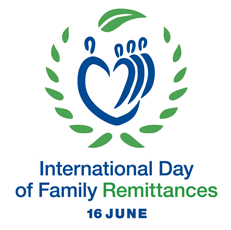Remittances rise 5.4% to $15.13b during Jul-Feb FY20
Express Tribune
KARACHI: Despite the fact that the deadly coronavirus has affected the global economy and sparked rumours of an approaching recession, Pakistan has continued to receive a higher inflow of dollars on account of workers’ remittances since majority of its labourers are employed in blue collar occupations.
Pakistan has received workers’ remittances worth $15.13 billion in the first eight-month (Jul-Feb) of the current fiscal year which is 5.4% higher than $14.36 billion received in the same period last year, the State Bank of Pakistan (SBP) reported on Tuesday.
Pakistani workers abroad continued to remit higher amounts as they remained unhurt in Saudi Arabia which has been replacing foreign workers with local ones in several sectors to fix fiscal and budgetary financing deficit, said an official heading the remittances department at a state-owned bank.
Majority of Pakistanis have found job opportunities in the kingdom.
According to the official data, a total of 11.25 million Pakistanis were living in foreign countries as on December 31, 2019 and almost half of them were based in Saudi Arabia, according to Bureau of Emigration and Overseas Employment, Islamabad.
“Pakistanis remain unhurt in Saudi Arabia since majority of them are doing the jobs which no one else can do. They have the ability to construct roads and buildings in high temperatures,” the banker said.
Riyadh has so far replaced foreign workers with the local ones in white collar occupations including in hotels and offices.
Besides, it has significantly increased the visa fee for the workers’ family members in the recent past. This development has convinced a big portion of Pakistanis to send their families back to Pakistan. “This situation encouraged Pakistanis to remit higher amount of money home for their immediate family members compared to earlier situation,” the banker said.
The official, however, feared Pakistani people may lose jobs as well if the international oil prices continue to remain on the lower side for more than a couple of months. Riyadh’s economy is mostly run through oil exports.
“Construction is the sector which feels the immediate brunt in any melting economy and majority Pakistanis are employed in this particular sector in Saudi Arabia,” the banker said.
The oil prices fell sharply in the past couple of days due to a price war between the two leading oil exporting countries ie Saudi Arabia and Russia.
Earlier, they failed to agree on slashing output to stabilise prices in the backdrop of a slowdown in the global economy amid the coronavirus epidemic.
The virus broke out in mainland China in December and gradually spread to over 60 countries.
“It has, however, yet not impacted workers’ remittances inflow to Pakistan,” the banker noted.
Pakistan received comparatively better remittances from other parts of the world till date.
Pakistan itself has so far confirmed around 16 infected cases and the majority of the affected people have international travel history.
In February alone, the remittances rose 15% to $1.83 billion compared to $1.58 billion in the same month of the previous year. The February inflows, however, stands 4.4% lower compared to $1.90 billion in the previous month of January.
Country-wise remittances
During February 2020, the inflow of workers’ remittances from Saudi Arabia increased by 14% to $422 million compared to $370 million in February 2019.
The remittances from UAE rose 15% to $387 million in the month compared to $336 million in the same month last year. The dispatches from the US surged 38% to $333 million compared to $241 million. Remittances remained steady at $254 million from the UK on a year-on-year basis.
Pakistanis dispatched 17% higher remittances at $178 million from GCC countries (including Bahrain, Kuwait, Qatar and Oman) compared to $152 million. They sent 18% higher funds from EU countries at $45 million compared to $38 million.
Remittances received from Malaysia, Norway, Switzerland, Australia, Canada, Japan and other countries during February 2020 improved 7% to $205 million against $192 million received in February 2019, the central bank reported.
Source: https://tribune.com.pk/story/2173545/2-remittances-rise-5-4-15-13b-jul-feb-fy20/


